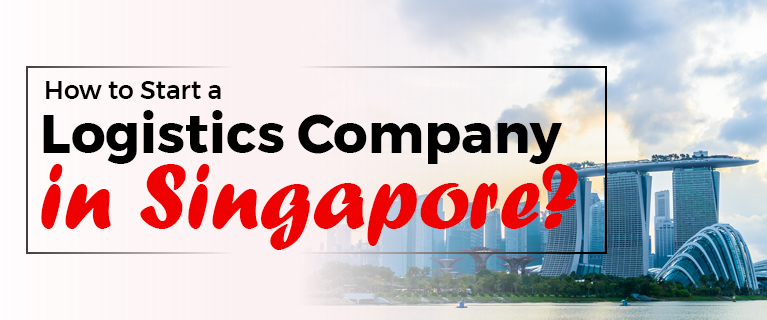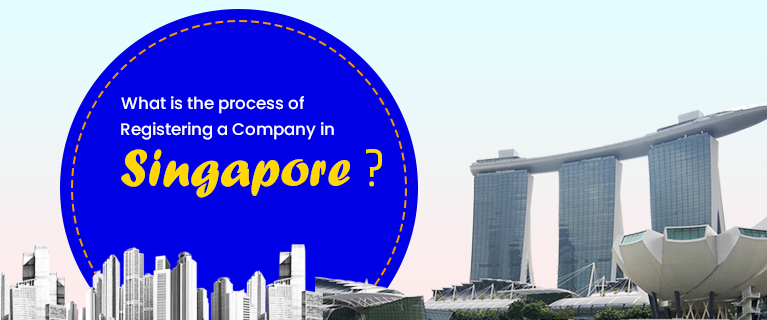How to Start a Logistics Company in Singapore?
Singapore's strategic location, world-class infrastructure, and business-friendly environment make it a prime destination for entrepreneurs looking to venture into the logistics industry. If you're considering establishing your logistics company in Singapore, this comprehensive guide will walk you through the necessary steps and insights to navigate the process successfully. From understanding the logistics business model to marketing your services, we'll cover everything you need to know to set up a thriving logistics company in Singapore.
Understanding the Logistics Business Model
Before embarking on your logistics journey, it's crucial to grasp the fundamentals of the logistics business model. Logistics involves the efficient movement and management of goods, materials, or products from one point to another. As a logistics company, you'll play a pivotal role in optimizing supply chain operations, ensuring timely deliveries, and providing effective freight forwarding solutions to your clients.
Read also this -: Criteria for Business Registration in SingaporeIdentifying Target Customers and Market Segments
Define your target customers and market segments based on the services you intend to offer. Potential clients could include manufacturers, wholesalers, retailers, e-commerce businesses, and other enterprises in need of reliable logistics solutions.
Conducting Market Research and Analysis
Understanding the competitive environment and recognizing potential possibilities and problems within Singapore's logistics industry, all of this requires thorough market research. To strategically position your business, consider competition, pricing strategies, clientele, and current industry trends.
Crafting a comprehensive business plan for Your Logistics Company
A well-structured business plan forms the bedrock of any successful venture. Outline your company's mission, vision, goals, and the services you intend to provide. Include a detailed financial projection, marketing strategy, and operational plan within your business plan.
Selecting Your Company's Legal Structure and Registering Your Business
Select the most suitable legal structure for your logistics company. Sole Proprietorship, Private Limited Company, Partnership and Limited Liability Partnership (LLP) are some of the common options in Singapore. Register your company with the Accounting and Corporate Regulatory Authority (ACRA) and secure the required business licenses and permits.
Determine Your Startup Finance Plan
Evaluate the initial capital needed for establishing your logistics company. Develop a financial plan that outlines your funding sources, startup costs, working capital requirements, and projected revenues. Consider potential funding avenues, such as personal savings, loans, or investor partnerships.
Set Up Your Office and Obtain Certifications, Licenses & Permits
You may need certificates and permits from relevant agencies, such as the Land Transport Authority (LTA), Civil Aviation Authority of Singapore (CAAS), or Maritime and Port Authority of Singapore (MPA), depending on the nature of your logistics services.
Read also this -: A Guide to Company Formation in SingaporeMarket Your Services and Build Your Network
Devise a comprehensive marketing strategy to promote your logistics services. Leverage digital marketing, participate in industry events and trade shows, and forge strong networking relationships within the logistics community and potential customer base.
Conclusion
Embarking on the journey of starting a logistics company in Singapore presents an exciting opportunity to leverage the nation's strategic advantages, advanced infrastructure, and business-friendly atmosphere. By comprehending the logistics business model, conducting thorough market research, crafting a robust business plan, and adhering to legal requirements, you can establish a thriving logistics enterprise in Singapore. As you promote your services and cultivate a robust network, your logistics company will be primed to excel within the competitive landscape and contribute to Singapore's status as a prominent logistics hub in the region.



Starting a logistics company in Singapore seems like a great opportunity with all the advantages the country offers. I particularly liked the section on crafting a business plan and understanding the logistics model. I’m currently looking into company formation in Singapore, and this article has given me a clearer picture of the steps involved. Thank you for the insightful advice!
ReplyDelete